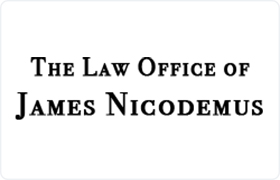Highland Park Divorce Lawyer, Illinois
Sponsored Law Firm
-
 x
x

Click For More Info:
-
The Law Offices of James Nicodemus
2700 Patriot Blvd Suite 250 Glenview, IL 60026» view mapDivorce & Family Law Experienced Divorce & Family Lawyer
When you need accurate representation, whether it’s a divorce lawyer, family lawyer or child custody attorney, James Nicodemus is there for you.
800-986-5891
Includes: Alimony & Spousal Support
Eric Sucharski
Divorce & Family Law, Child Custody, Child Support, Guardianships & Conservatorships, Alimony & Spousal Support
Northbrook, IL Divorce Lawyer
Eric, the founder of Sucharski Law Firm LLC, has dedicated his career exclusively to family law. With extensive experience in trial litigation and a t... (more)
Alan Lenczycki
✓ VERIFIED *Status is reviewed annually. For latest information visit hereDivorce & Family Law, Divorce, Child Custody, Felony
Alan K. Lenczycki is an experienced litigator and counselor focusing his practice on family and criminal law. A former prosecutor for six years in ... (more)
Kathryn L. Ciesla
Divorce & Family Law, Child Custody, Divorce
Status: In Good Standing *Status is reviewed annually. For latest information visit here
Sandra M. Rosenbloom
Alimony & Spousal Support, Child Support, Farms, Divorce
Status: In Good Standing *Status is reviewed annually. For latest information visit here
H. Michelle Gideon
Alimony & Spousal Support, Child Support, Farms, Divorce
Status: In Good Standing *Status is reviewed annually. For latest information visit here
Kathy J. Debruyne
Divorce, Family Law
Status: In Good Standing *Status is reviewed annually. For latest information visit here
Michael S. Strauss
Farms, Divorce, Child Support, Adoption, Estate Planning
Status: In Good Standing *Status is reviewed annually. For latest information visit here Licensed: 28 Years
Laura Presto
Family Law, Divorce, Divorce & Family Law
Status: In Good Standing *Status is reviewed annually. For latest information visit here Licensed: 18 Years
David Charles Adams
Other, Family Law, Divorce, Divorce & Family Law
Status: In Good Standing *Status is reviewed annually. For latest information visit here Licensed: 34 Years
Patricia Kalal
Family Law, Divorce, Divorce & Family Law, Juvenile Law
Status: In Good Standing *Status is reviewed annually. For latest information visit here Licensed: 41 Years
 James Nicodemus Glenview, IL
James Nicodemus Glenview, IL AboutThe Law Offices of James Nicodemus
AboutThe Law Offices of James Nicodemus Practice AreasExpertise
Practice AreasExpertise

